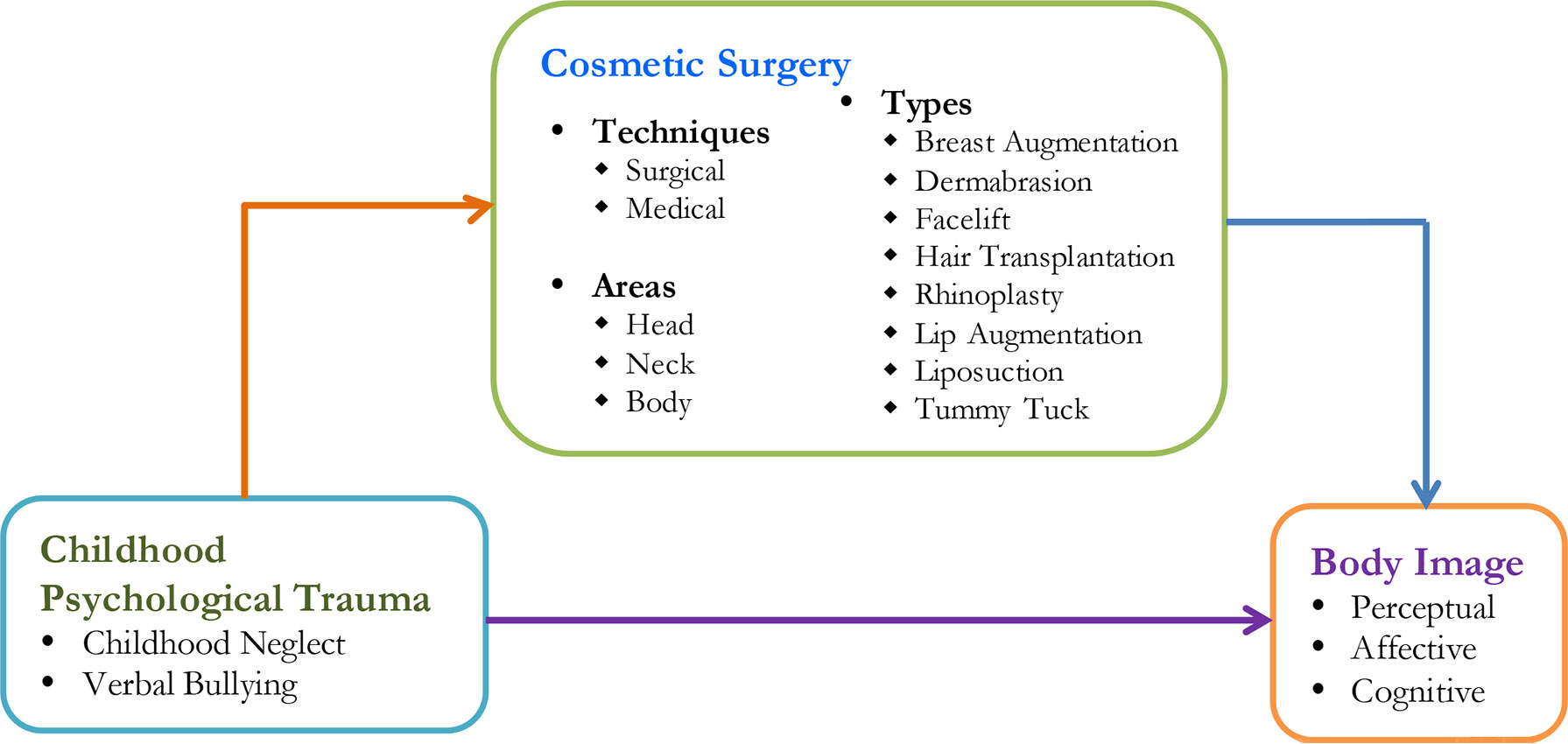What You Need to Know About Cosmetic Surgery Psychological Checks Before Surgery
What You Need to Know About Cosmetic Surgery Psychological Checks Before Surgery
Blog Article
An Alternative Approach to Cosmetic Surgical Treatment: Why Emotional Checks Matter
In recent times, the importance of integrating psychological assessments into the plastic surgery procedure has actually gained increasing attention. An alternative strategy not just addresses the physical aspects of surgery yet also highlights the psychological readiness of the client, which is important for accomplishing desired outcomes. Comprehending inspirations, identifying possible psychological wellness worries, and establishing sensible assumptions can exceptionally impact fulfillment degrees. Nevertheless, the integration of these psychological checks increases vital inquiries regarding the honest responsibilities of doctor and the effects for client care. As we discover this topic, the intricacies become progressively apparent.
Recognizing Psychological Readiness
Prior to going through plastic surgery, it is critical for individuals to examine their mental readiness, as this examination can significantly influence both the decision-making procedure and the general results of the procedure. Emotional readiness includes a person's psychological security, coping devices, and reasonable assumptions pertaining to the surgery and its results.

Mental health and wellness examinations conducted by certified specialists are very useful in this context. They can help determine any type of underlying mental problems, such as body dysmorphic problem or anxiety, which may complicate the surgical process. Inevitably, a sincere appraisal of mental preparedness not only sustains educated decision-making but likewise promotes a much more favorable surgical experience, boosting the likelihood of achieving wanted end results and advertising lasting well-being in the person's life.
The Role of Motivation
Recognizing emotional readiness is carefully intertwined with the motivations behind looking for plastic surgery. Motivation serves as a critical motorist that influences an individual's decision-making process and overall contentment with the end results. Candidates might be motivated by different elements, consisting of individual instabilities, social stress, or a need for self-improvement. Identifying the underlying inspirations can expose understandings into the person's mental state and readiness for the procedure.
Innate inspirations, such as an authentic need for self-enhancement and self-confidence, are typically linked with more positive results. Alternatively, extrinsic inspirations-- like looking for recognition from others or attempting to fit social ideals-- might show unresolved mental concerns that can complicate the medical trip.
In addition, recognizing these inspirations helps medical care experts to examine the suitability of the treatment and the possibility of accomplishing wanted outcomes. It is important for practitioners to take part in seminars with clients, allowing them to express their factors for pursuing surgical treatment. By checking out inspirations thoroughly, practitioners can much better make sure that people are prepared not just for the physical modifications yet likewise for the emotional and psychological ramifications that come with cosmetic surgical treatment.
Usual Emotional Worries
Numerous mental worries can develop in individuals taking into consideration cosmetic surgical procedure, considerably affecting their general experience and satisfaction with the procedure. One primary problem is body dysmorphic disorder (BDD), defined by a compulsive emphasis on perceived problems in look. This condition can lead individuals to go after numerous surgical treatments in search of an unattainable ideal, commonly causing frustration and emotional distress.
Furthermore, anxiousness and depressive signs and symptoms may emerge in candidates for plastic surgery, originating from pre-existing mental wellness concerns or the stress related to social standards of charm. These individuals might nurture impractical assumptions concerning the results of the surgical treatment, believing it will resolve deeper psychological or mental concerns.
Self-worth is an additional important aspect, as many candidates link their self-worth to physical appearance. An absence of self-acceptance can bring about spontaneous decisions concerning surgical treatment, additionally complicating recuperation and complete satisfaction levels. The Check Out Your URL social implications of cosmetic surgery-- such as judgment from peers or transformed partnerships-- can create feelings of isolation or regret post-operation. Dealing with these psychological worries is necessary to make certain individuals are making informed, healthy and balanced decisions about their plastic surgery trip.
Benefits of Emotional Assessments
A comprehensive mental examination can provide substantial benefits for individuals considering cosmetic surgery. Largely, it helps to determine underlying psychological concerns that may impact both the choice to go through surgical procedure and the expected end results. By examining these variables, healthcare service providers can ensure that candidates have sensible assumptions and a healthy and balanced attitude, which are vital for satisfaction with the results.
Furthermore, mental analyses can act as a safety net versus possible post-operative complications. Individuals with unsettled emotional or mental problems may battle with body image disruptions or depression after surgery - non-invasive surgery psychological assessment. By addressing these issues ahead of time, professionals can provide tailored assistance and sources, promoting an extra favorable recuperation experience
Additionally, mental examinations facilitate educated decision-making. They urge individuals to show on their motivations for seeking cosmetic treatments, enabling for deeper self-awareness and consideration of alternate choices. This process can result in enhanced patient-provider interaction, cultivating a collaborative strategy to cosmetic surgery that focuses on psychological and psychological health along with physical transformations.
Integrating Checks Into Treatments

Additionally, integrating psychological explore the surgery need to likewise consist of recurring support. Post-operative follow-ups should address both physical healing and emotional change. Offering individuals with access to psychological wellness professionals can facilitate coping strategies and realistic self-image support, boosting their total medical experience.

Conclusion
Finally, the combination of emotional examinations into the plastic surgery procedure is necessary for advertising client health and enhancing medical end results. By evaluating mental preparedness, understanding motivations, and addressing typical mental health and wellness problems, medical care suppliers can help with enlightened decision-making and foster much healthier coping methods. This all natural method not only sustains people in achieving reasonable assumptions however likewise minimizes the threats related to underlying mental issues, inevitably leading to increased fulfillment and improved post-operative experiences.
Understanding psychological readiness is closely linked with the inspirations behind looking for cosmetic surgical procedure. By over at this website exploring motivations thoroughly, professionals can much better make certain that people are prepared not just for the physical adjustments but Discover More Here likewise for the mental and emotional implications that come with cosmetic surgery.
Numerous psychological concerns can arise in individuals thinking about cosmetic surgical treatment, dramatically influencing their general experience and contentment with the treatment. Attending to these mental issues is vital to guarantee individuals are making informed, healthy and balanced choices regarding their cosmetic surgery journey.
A detailed emotional evaluation can use considerable advantages for individuals pondering cosmetic surgical treatment. cosmetic surgery psychological checks.
Report this page